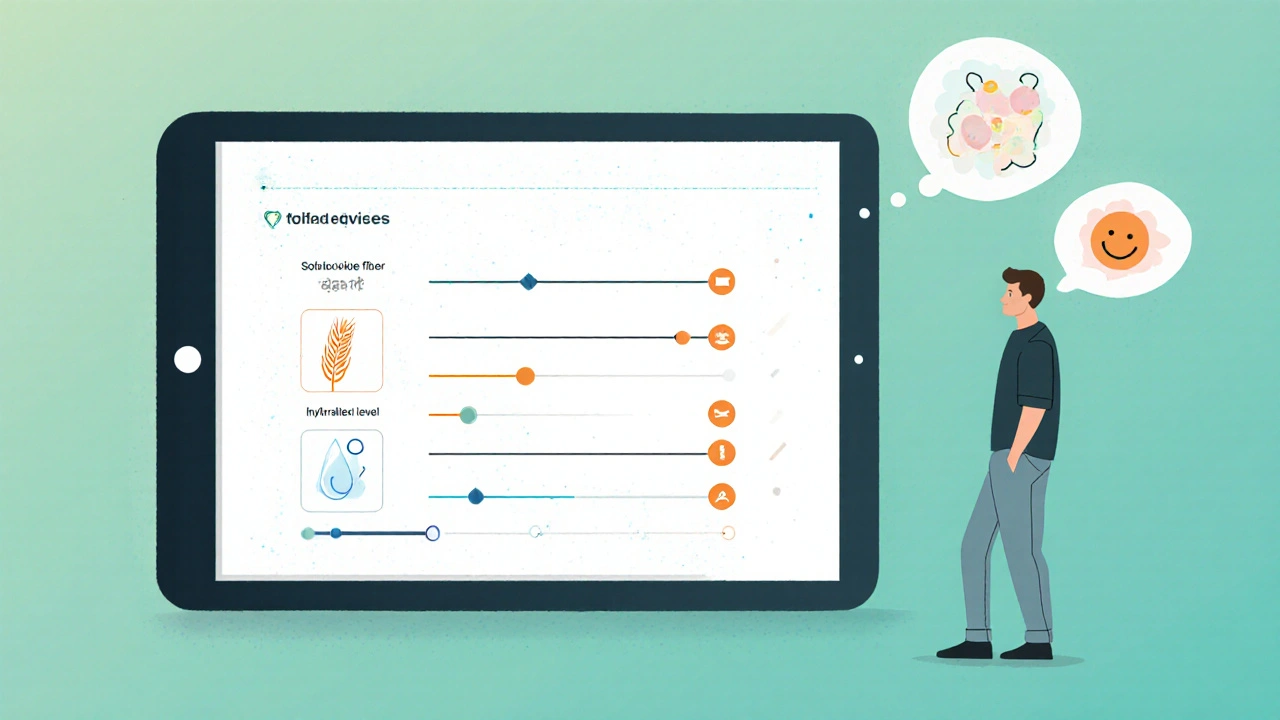Flatulence Guide: Causes, Relief & Prevention
When working with Flatulence, the buildup and release of intestinal gas that creates belly pressure, rumbling sounds, and occasional embarrassment. Also known as intestinal gas, it can signal diet issues, medication side‑effects, or an imbalance in gut microbes.
Key Triggers Behind Everyday Gas
Flatulence often stems from what you put on your plate. Foods rich in Dietary Fiber, especially soluble types found in beans, lentils, and whole grains, ferment in the colon and release hydrogen, methane, or carbon dioxide. Carbonated drinks add extra bubbles that travel straight to the intestines, while swallowing air during fast eating or chewing gum can add to the load. Even sugar substitutes like sorbitol, common in sugar‑free gum, are notorious for causing extra gas. The pattern is simple: flatulence = diet + fermentation + air intake, which means tweaking meal composition often cuts the noise quickly.
How Gut Health Shapes Gas Production
Probiotics play a starring role in moderating flatulence. A balanced mix of Probiotics, such as Lactobacillus and Bifidobacterium strains, competes with gas‑producing bacteria and can reduce the volume of foul‑smelling gas. On the flip side, broad‑spectrum antibiotics like Noroxin or even short courses of diuretics can wipe out beneficial microbes, paving the way for opportunistic bacteria that generate more gas. The relationship is clear: a healthy probiotic population often correlates with less bloating and smoother digestion, while disruption tends to amplify flatulence.
Medication Side‑Effects That Add to the Burden
Many prescription drugs list gas or bloating as a side‑effect. Thiazide diuretics (e.g., Hydrochlorothiazide, Chlorthalidone) increase urinary output but can also shift electrolyte balances, leading to intestinal discomfort. Antacids, while useful for heartburn, sometimes alter stomach acidity enough to change how food breaks down, indirectly boosting gas formation. Even antidepressants like Olanzapine have been reported to slow gut motility, trapping gas longer. Recognizing that Antacids agents that neutralize stomach acid can both relieve and provoke flatulence helps you discuss adjustments with a healthcare provider.
Practical Steps to Keep Flatulence in Check
Putting the pieces together, you can tackle flatulence from three angles: diet, gut microbes, and medication review. Start by cutting back on high‑fiber culprits for a few days, then re‑introduce them slowly to let your microbiome adapt. Add a daily probiotic supplement or fermented foods like yogurt to support beneficial bacteria. Finally, audit any prescription or over‑the‑counter meds that list gas or bloating—ask your pharmacist if a switch is possible. By addressing Bloating, the uncomfortable swelling that often rides alongside flatulence, you’ll notice a smoother, quieter digestive rhythm. Below, you’ll find a curated list of articles that dive deeper into each of these areas, from medication comparisons to home remedies that calm gas and bloating.

How Fiber Affects Flatulence and Improves Digestive Health
Learn how different types of fiber affect gas production, how to balance intake for digestive health, and practical tips to reduce flatulence while enjoying fiber's benefits.
October 4 2025